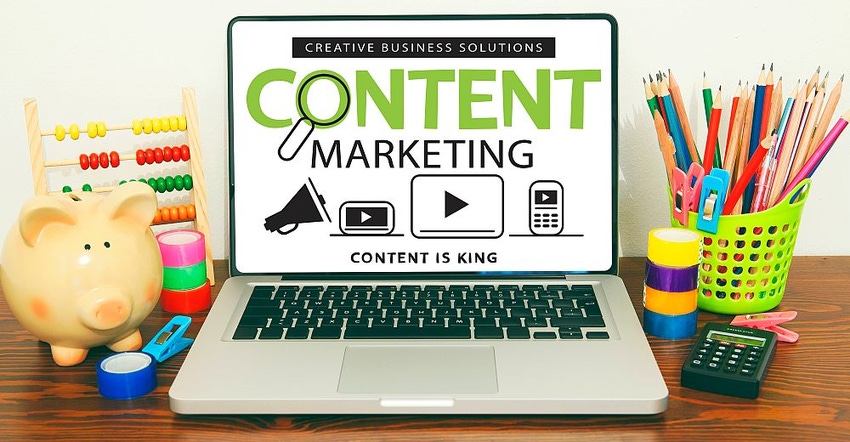You may think building a content-marketing strategy for your self-storage business is too overwhelming to tackle, but it doesn’t have to be. In this article, learn what good content is and what it should accomplish, plus tips for creating a solid strategy.

For many self-storage operators, a digital-marketing strategy can feel overwhelmingly complex. A healthy one incorporates several moving parts such as online advertising, local listings, social media and on-page content. That last is an area in which many of you struggle.
But content marketing doesn’t have to be intimidating. Even when you factor in search engine optimization (SEO) and Google’s frequently changing algorithms, the development of an effective content strategy is simple, as it’s all about one thing: Telling your brand story to customers.
The Purpose of Content
To begin, let’s take a moment to examine what digital, SEO-driven content is. It encompasses the following:
Static page content that shares details about your company, facilities and features
Articles that seek to educate your customers about storage and storage-adjacent topics
Social media messaging that promotes services and products and distributes information
Before you sit down to create content—whether in-house or via an agency partner—it’s important to also understand its purpose. Any piece of content should seek to do at least one of three things, if not all three at once:
Inform or educate the customer about a product, service or best practice
Create brand awareness
Drive users further into the sales funnel
Whether you’re a novice when it comes to keyword strategy, a writer in search of ways to build your content program, or an experienced marketing professional dipping your toes into digital, pursuing a content strategy that involves all three aspects is one way to help your program thrive.
Informing the Consumer
When you write content for consumers, what’s your first instinct? How do you choose what to cover? There are a handful of ways to approach it. One strong tactic is to examine online search terms, queries and highly ranking keywords to see what information people are after. However, if you’re new to content strategy, intimidated by this prospect or handling your content in-house, you may not know where to begin. If that’s the case, just use what you’re comfortable with—questions you’re already being asked in your self-storage facilities.
You know your industry and your property. Use that to your advantage and write content based around answering common questions. Highlight the features in your business that are most desirable to customers. Once you address these basic needs, branch out into pieces about best practices for storage, organization or other adjacent topics.
Creating Brand Awareness
Often, content marketing is a long game. Unlike other metrics-driven forms of digital marketing, such as pay-per-click, it may not immediately result in conversions. However, it can plant the seed for future engagement and conversions as potential customers find the answers to their questions. Brand awareness through content development is a powerful tool.
With a complete content strategy that includes blogging, detailed static and location-page content, and social media messaging, your presence will take up real estate in consumers’ social media feeds and, therefore, in their minds. Of course, that doesn’t mean the job is finished. Continued engagement and growth are keys for customer retention and acquisition.
Driving Users Into the Sales Funnel
Your primary goal with any digital marketing is to convert online searchers into self-storage renters. To that end, paying attention to keyword strategy is paramount. You need to know what your local leads want and need, and that means knowing the products and services for which they’re searching. Understand the unique variations of keywords people use to refer to your product in your market or city, such as “self-storage” vs. “storage units,” and ensure you’re speaking their language.
You must also schedule content to reach your audience at appropriate times. For example, a blog post about the benefits of student storage can be evergreen, but it’ll likely have the biggest impact if it goes live in the spring as students begin to prepare for summer move-out. This type of seasonality can even extend to weather events or holidays. Climate-controlled storage is essential in markets with scorching summer temperatures, for instance.
Of course, queries aren’t always tied to a season. Customers often ask about the differences between drive-up storage and interior units, or whether they can buy boxes, tape and other packing supplies in your store. Self-storage operators who can answer these questions for end users and search algorithms will always have a leg up. If you know the answer well, be able to explain it clearly. If you offer a product or service, promote it on your facility pages, blogs and other areas of your site.
Ask for Professional Guidance
If there’s one piece of advice I have for any self-storage operator, big or small, who’s interested in developing a comprehensive content strategy, it’s this: Don’t be afraid to ask for help. Tactics are constantly shifting as industry trends change. What worked two years ago might not be relevant today.
Nervous? Don’t be. You don’t have to do everything alone. Partner with an expert who’s well-versed in the creative and data-driven aspects of building a content program. Content touches every aspect of your business and audience, so if you don’t have a strong plan, you may be hamstringing all your other marketing efforts.
Doug Messel is a content specialist at Go Local Interactive, a digital-marketing agency specializing in customer-acquisition strategies. The company helps self-storage operators implement, manage and track marketing efforts down to the local level. Offerings include creative services, local-listings management, paid search, search engine optimization, social media and website development. For more information, call 913.689.3170 or email [email protected].
About the Author(s)
You May Also Like





